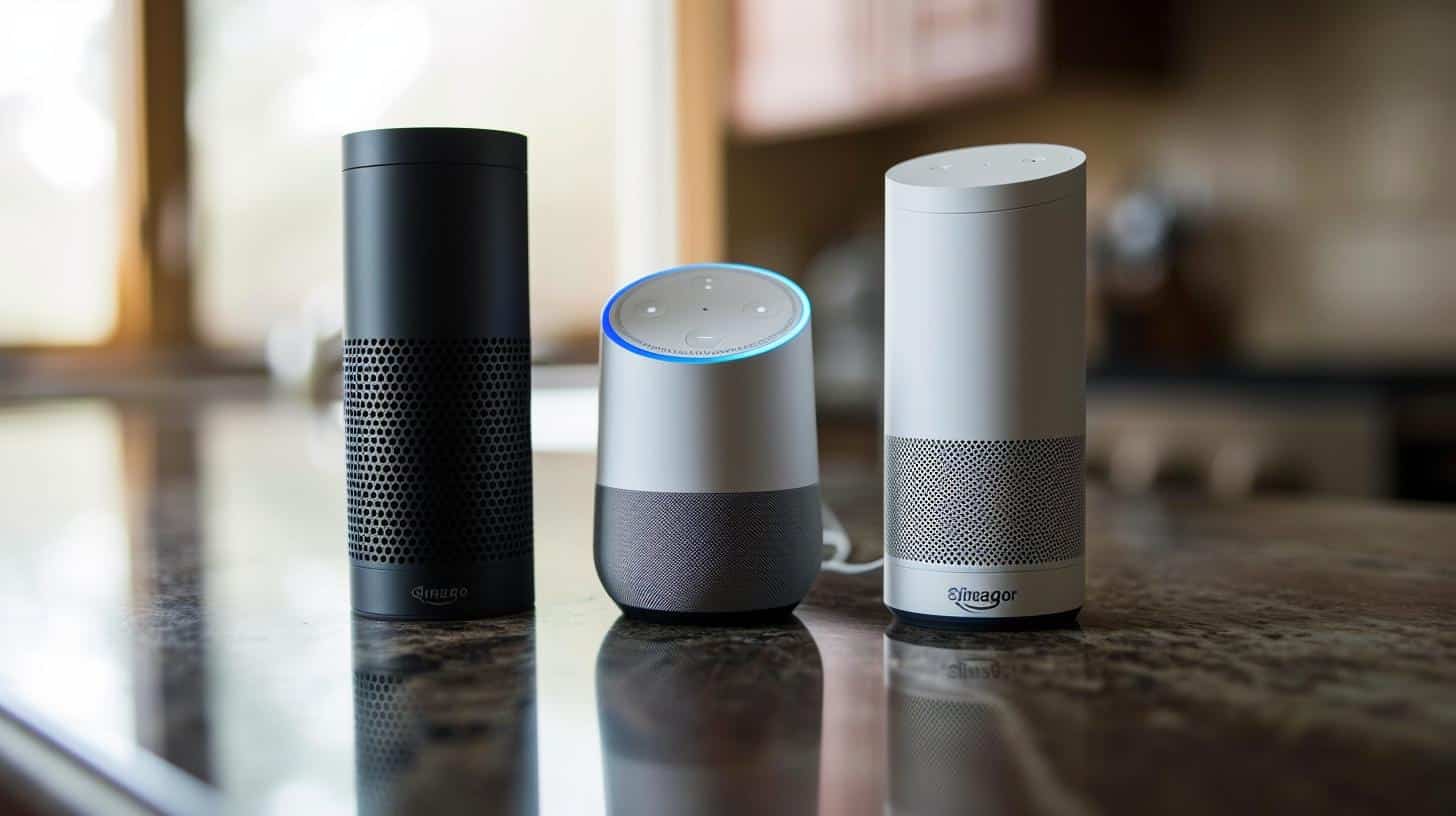===INTRO: The Face-off of Smart Home Devices ===
The race to dominate the smart home market has seen two major players emerge: Amazon Echo and Google Nest. These voice-activated smart speakers have become essential additions to households around the world, providing a range of functionalities from playing music to controlling smart devices. In this article, we will conduct a SWOT (Strengths, Weaknesses, Opportunities, and Threats) analysis to compare and contrast the two devices, shedding light on the advantages each has over the other.
===Strengths: What Sets Amazon Echo Apart===
**1. Voice Recognition Accuracy:** One of the key strengths of Amazon Echo is its exceptional voice recognition accuracy. The device has an impressive ability to understand and interpret user commands, making it highly efficient in carrying out tasks. Whether it’s playing a specific song, scheduling appointments, or ordering groceries, Amazon Echo rarely misses a beat.
**2. Extensive Compatibility:** Amazon Echo boasts a vast ecosystem of compatible smart home devices, allowing users to effortlessly control their entire smart home setup with just their voice. It seamlessly integrates with popular platforms such as Philips Hue, Nest, and Samsung SmartThings, making it a highly versatile and convenient choice for smart home enthusiasts.
**3. Alexa Skills: **Amazon Echo’s virtual assistant, Alexa, is equipped with a wide range of skills that enhance its functionality. With over 100,000 skills available, users can personalize their Echo to suit their specific needs. From tracking fitness goals to ordering takeout, Alexa can do it all, thanks to its robust skill set.
===Weaknesses: Areas Where Google Nest Falls Short===
**1. Voice Recognition Accuracy:** While Google Nest’s voice recognition technology is impressive, it falls slightly short compared to Amazon Echo. Users may occasionally experience misinterpretations or inaccuracies in command execution, limiting its overall efficiency and reliability.
**2. Limited Ecosystem:** Google Nest’s compatibility with third-party devices and platforms is not as extensive as Amazon Echo’s. While it integrates well with Google’s ecosystem, users may face challenges when trying to connect devices from other brands. The limited options can be a drawback for those with a diverse range of smart home devices.
**3. Skills and Customization:** Google Nest lacks the extensive skill set and customization options offered by Amazon Echo. While it can perform many basic tasks, the lack of a robust ecosystem of third-party skills limits its potential. Users looking for a highly personalized and adaptable experience may find Google Nest lacking in this aspect.
===Opportunities: Growth Potential for Amazon Echo===
**1. Smart Home Market Expansion:** The smart home market is experiencing rapid growth, with an increasing number of households adopting smart devices. Amazon Echo’s extensive compatibility and established brand presence position it well to capitalize on this expansion, potentially increasing its market share and dominance.
**2. Integration with Other Amazon Services:** Amazon Echo has the advantage of being part of the broader Amazon ecosystem. With the integration of services like Amazon Prime, Amazon Music, and Amazon Fresh, users can seamlessly access a range of services through their Echo device. This integration further strengthens Amazon Echo’s appeal and potential for growth.
**3. Continued Innovation:** Amazon has shown a commitment to constant innovation and improvement with its Echo devices. The introduction of new features, hardware upgrades, and improved voice recognition technology enables Amazon Echo to stay ahead of the competition and maintain its market-leading position.
===Threats: How Google Nest poses a challenge to Amazon Echo===
**1. Google’s Strong Brand Presence:** Google’s established brand presence and loyal user base present a significant threat to Amazon Echo’s dominance. With the increasing integration of Google Assistant across various devices, Google Nest could gain market share, especially among users already enmeshed in the Google ecosystem.
**2. Technological Advancements:** Rapid advancements in voice recognition and smart home technology pose a threat to Amazon Echo’s position. As competitors invest in research and development, the gap in voice recognition accuracy and device compatibility may narrow, challenging Amazon Echo’s unique selling points.
**3. Privacy and Security Concerns:** The collection and storage of user data is a significant concern for smart home device users. While both Amazon Echo and Google Nest have privacy policies in place, any breaches or controversies surrounding data security could erode consumer trust and impact the adoption of these devices.
===OUTRO: Conclusion===
In the battle of Amazon Echo versus Google Nest, each device brings its own strengths and weaknesses to the table. Amazon Echo’s exceptional voice recognition accuracy and extensive compatibility make it a favorite among smart home enthusiasts. However, Google Nest’s brand presence, integration with the Google ecosystem, and evolving technology pose a serious challenge. As the smart home market continues to grow, it will be interesting to see how these two giants navigate the landscape and adapt to changing consumer demands.













